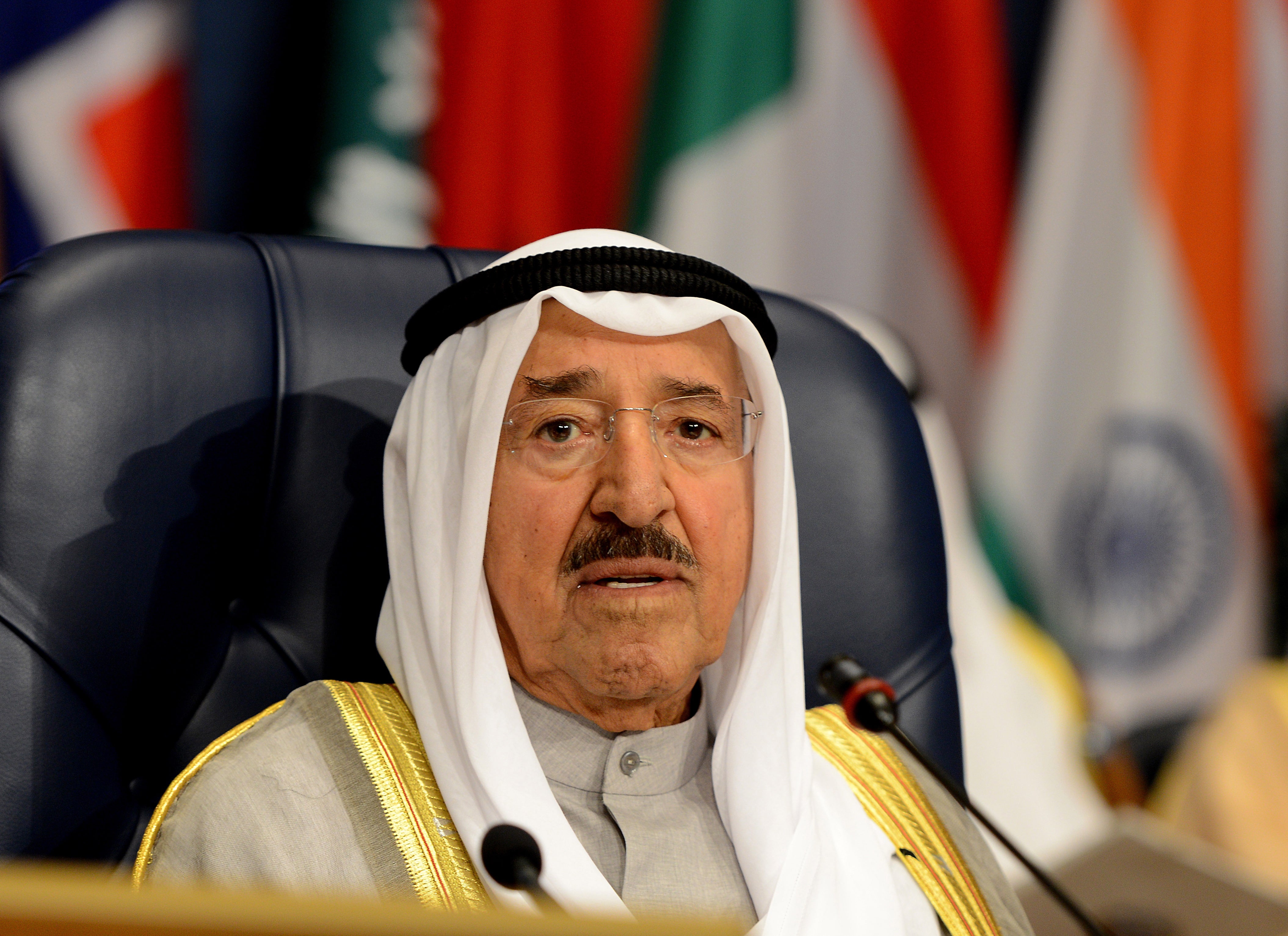Kuwait ruler Sheikh Sabah Al Ahmad Al Sabah dies aged 91
Emir’s passing comes two weeks after nation’s prime minister said his condition was improving

Your support helps us to tell the story
From reproductive rights to climate change to Big Tech, The Independent is on the ground when the story is developing. Whether it's investigating the financials of Elon Musk's pro-Trump PAC or producing our latest documentary, 'The A Word', which shines a light on the American women fighting for reproductive rights, we know how important it is to parse out the facts from the messaging.
At such a critical moment in US history, we need reporters on the ground. Your donation allows us to keep sending journalists to speak to both sides of the story.
The Independent is trusted by Americans across the entire political spectrum. And unlike many other quality news outlets, we choose not to lock Americans out of our reporting and analysis with paywalls. We believe quality journalism should be available to everyone, paid for by those who can afford it.
Your support makes all the difference.Kuwait’s ruler Sheikh Sabah Al Ahmad Al Sabah, known for his push for closer ties between his country and Iraq after the 1990 Gulf War and for establishing his state’s reputation as an international mediator, has died at the age of 91.
Sheikh Sabah had been hospitalised in the US since August after suffering with an unspecified illness. State television confirmed his passing on Tuesday after broadcasting Koranic prayers.
Just two weeks prior the nation’s prime minister, Sabah Al Khalid Al Sabah, informed ministers the emir’s health had been improving.
A member of the Kuwaiti royal family Sheikh Sabah served as foreign minister for 40 years, later becoming prime minister before he was named the country’s monarch in 2006.
His ascension to the throne came after parliament voted unanimously to oust his predecessor, the ailing Sheikh Saad Al Abdullah Al Sabah, just nine days into his rule.
His time as head of state in the US-allied nation ever since saw the emir having to cope with intense internal political disputes, see-sawing crude oil prices and the the fallout of the 2011 Arab Spring protests.
“He represents the older generation of Gulf leaders who valued discretion and moderation and the importance of personal ties among fellow monarchs,” said Kristin Diwan, a senior resident scholar at the Arab Gulf States Institute in Washington who studies Kuwait.
“No question he has suffered from the lack of deference and respect shown by the younger and more brash young princes holding power today.”
Sheikh Sabah was the 15th leader in a Kuwaiti family that has ruled for more than 250 years. A longtime widower, he lived for years in a palace known as Dar Salwa, which was named after his daughter Salwa, who died of cancer in 2002. Sheikh Sabah is survived by two sons.
He is expected to be succeeded by his half brother, Crown Prince Sheikh Nawaf Al Ahmad Al Sabah.
Boris Johnson was among the political figures to have paid tribute to the
Prime Minister Mr Johnson said: "Through his work as Foreign Minister, Prime Minister and later Amir he has made a personal contribution to regional stability and humanitarian assistance which will long be remembered.
"I sincerely hope the long and deep ties that unite our countries will continue, and through our cooperation and friendship we can contribute to peace, prosperity and justice in the world.
"I would like to offer my sincere condolences to the Al Sabah family and people of Kuwait."
Tony Blair, who was the UK prime minister when the emir took power in 2006, said: "The Emir was a man of profound compassion, humanity and dignity who all his life worked tirelessly for the best interests of his country and the region.
"He was deeply respected across the Middle East.
"He showed courage at the time of the invasion of Kuwait and wisdom in rebuilding his nation afterwards. His passing will be greatly mourned."
Foreign Secretary Dominic Raab described him as a "great humanitarian leader and a true friend of the United Kingdom".
He added: "He served Kuwait for many years with dedication, and as a founding father of the GCC (Gulf Cooperation Council) he contributed over many decades to maintaining peace and stability in the region."
Additional reporting by agencies
Join our commenting forum
Join thought-provoking conversations, follow other Independent readers and see their replies
Comments